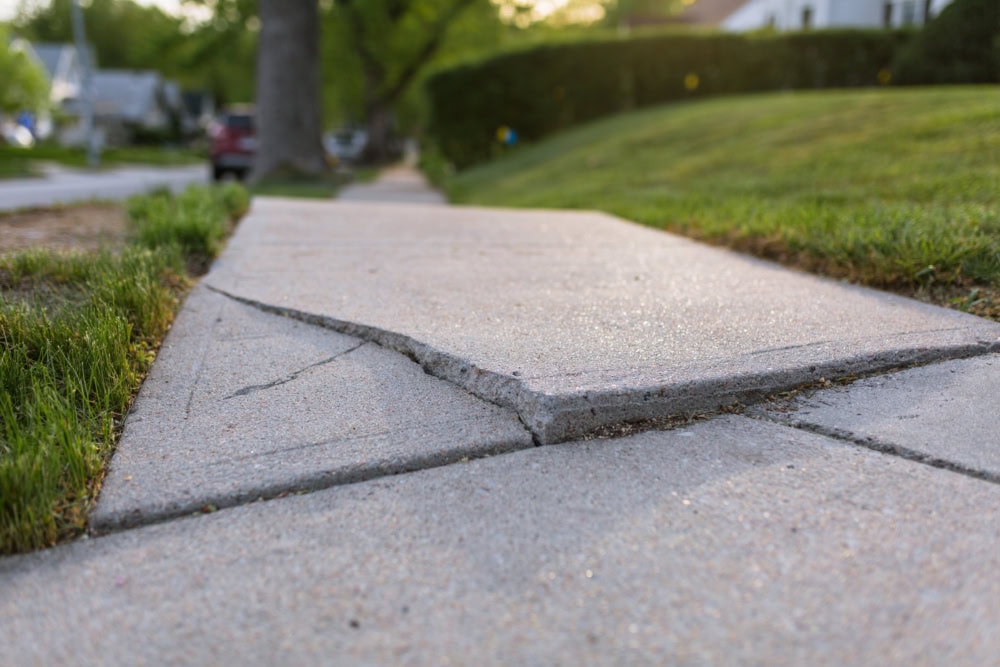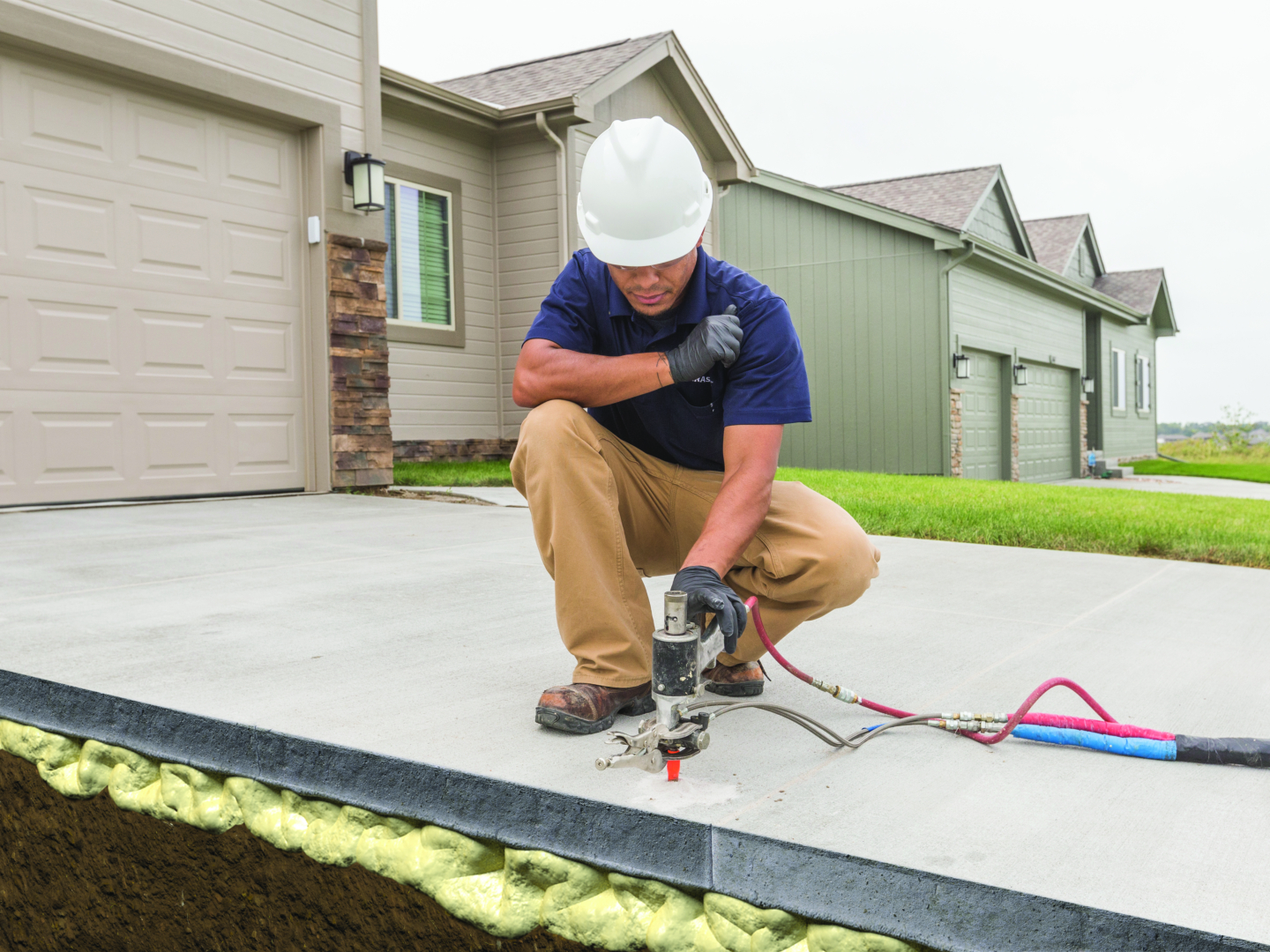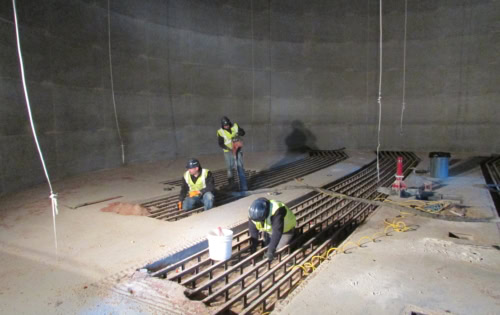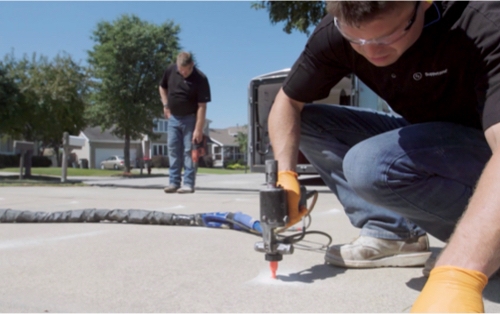Your driveway’s looking a bit like a rollercoaster, your patio’s got a persistent puddle, and your sidewalk now resembles a miniature mountain range. It’s time to address that sinking concrete, but how do you choose the right lifting method? Two primary contenders enter the ring: polyurethane foam and mudjacking. Let’s break down the key differences, including cost, to help you make an informed decision.
Read our Level Up Your Concrete: A Comprehensive Guide to Concrete Lifting article for more info on pros, cons and everything in between.

Mudjacking: The Traditional Approach
Mudjacking, also known as slabjacking, has been around for decades. But just because it’s been around for decades, doesn’t mean that it’s the best solution. It involves pumping a thick slurry of cement, sand, and water beneath the concrete to lift it back into place.
Advantages of Mudjacking:
- Cost-effective: Mudjacking is generally the more affordable option upfront, typically costing $3 to $6 per square foot.
- Environmentally friendly: The materials used are often locally sourced and have a lower environmental impact than some polyurethane foams.
Disadvantages of Mudjacking:
- Heavy: The weight of the slurry can put extra stress on the soil, potentially leading to future settling.
- Messy: Mudjacking can be a messy process, with potential for splattering and staining.
- Larger Holes: Requires larger injection holes, which can be more noticeable.
- Longer Cure Time: The slurry takes longer to cure, delaying the use of your concrete.
- Susceptible to Erosion: The grout can erode over time, especially with water exposure.
Polyurethane Foam: The Modern Solution
Polyurethane foam is a lightweight, expanding material that quickly lifts and stabilizes concrete. At LevelUp Concrete Solutions, we prefer polyurethane for its numerous advantages.
Advantages of Polyurethane:
- Lightweight: Puts minimal stress on the soil, reducing the chance of future settling.
- Fast Cure Time: Cures in minutes, allowing you to use your concrete almost immediately.
- Durable and Water-Resistant: Resists erosion and washout, providing a long-lasting solution.
- Smaller Injection Holes: Requires smaller, less noticeable holes.
- Precise Control: Allows for precise lifting and leveling, even in tight spaces.
- Versatile: Can be used for a wider range of applications, including lifting and stabilizing driveways, patios, pool decks, and even interior floors.
Disadvantages of Polyurethane:
- Higher Upfront Cost: Polyurethane can be more expensive initially
- Requires Specialized Equipment: Proper installation requires specialized equipment and trained technicians.
Making the Right Choice

Ultimately, the best choice depends on your specific needs and budget.
- Consider Mudjacking if: You’re on a very tight budget and the concrete is in relatively good condition with minor settling.
- Choose Polyurethane if: You prioritize long-term durability, a fast turnaround time, and minimal disruption, and are willing to invest in a higher quality solution.
For more information on Polyurethane Concrete Lifting, visit the PolyLevel website: https://www.polylevel.com/technical-information.html
LevelUp Your Concrete with Confidence
At LevelUp Concrete Solutions, we specialize in polyurethane concrete lifting. Our experienced technicians use high-quality materials and advanced techniques to deliver exceptional results. We’re committed to providing honest assessments and helping you choose the best solution for your concrete repair needs.
Contact us today for a free estimate and let us help you level up your concrete!



